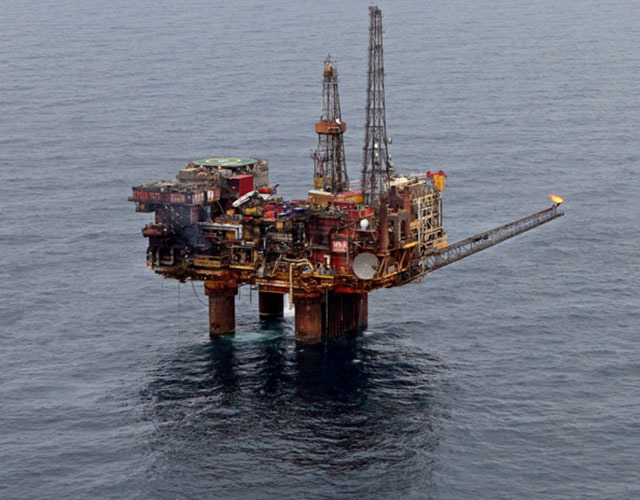
I’ve been told that scores of companies in and around Aberdeen are now letting go of people as the oil price-driven depression deepens in high cost oil & gas provinces around the globe.
The likelihood is that several thousand jobs in our area have either gone or are about to be axed.
But remember, it’s not just the UKCS that’s being hammered.
Obviously our North Sea neighbours are taking a battering too, also deepwater US Gulf of Mexico, offshore Brazil and West Africa must be feeling sore by now.
What of course separates us out from the herd is our totally unfit for purpose fiscal regime, of which more below.
Otherwise we’re the same as everyone else; sloppy and unfit because that’s what good times so often bring; in this case for most of the period since the UKCS emerged from the late 1997 through early 1999 downturn.
Up until that particular crunch, the North Sea had been on an intensive fitness course … UK and Norway especially as they fought the flab on both the capex and the opex fronts. In the UK it was cruelly called CRINE.
Clearly there’s a huge amount of work to do before meaningful inroads are made into the bloated costs burden. Mercifully, there remain a reasonable number of North Sea fields that are still making modest money, even at 45 bucks a barrel. So that must surely act as some kind of encouragement.
But should the price slide below $40, then as has already been said in recent days, that will likely spell curtains for a significant number of fields in late life production where spending another shed-load of money to eke out their lives further is totally pointless.
My understanding is that around 100 UKCS fields could be shut down for good this year, killed by the poisonous cocktail of the commodity prices collapse and a totally unfit tax regime.
Even if a small profit was to be turned, the Treasury will be grabbing up to 80p or so of every hard-earned pound, leaving hardly anything to salt away for a rainy day. That’s mean … insulting.
But hang on, there’s a hurricane blowing out there as Opec wages war, especially with the Americans as they carry on ramping up production, exercising no discipline whatsoever, nor are they ever likely too.
All we can hope for in that quarter is that the development and production of shale oil and gas resources is eventually hit in some way.
Maybe because fields slip below break-even, or lenders get rough with small producers especially with the result that some go under because they are foreclosed.
That is already happening.
Either way, there would be less money available to sustain the punishing pace of drilling up new wells and fracturing them to release hydrocarbons in commercial quantities, or working over existing ones to keep them producing.
There again, no-one should underestimate the ability of the American to mobilise big solutions … such as a grand cost reduction drive.
Because there’s never been one.
Perhaps slicing 20-30% off capex and opex costs might be quite easy. Quite how myriad producers can be brought together, I haven’t a clue.
But get the American going and they have a history of being able to move mountains, almost literally.
Then where would Opec be? We already know the answer to that as the Saudis have stated very clearly in recent days that they have it within their power to push the price of a barrel to as little as $20.
That would be a killer for the North Sea and hugely damaging to the US.
Back to the UK Treasury. I’ve just reacquainted myself with what the oil price was each time New Labour chancellor Gordon Brown hiked the North Sea’s Corporation Tax supplementary charge.
The median month price for Brent when Brown applied/announced the first supplementary charge in March 2002 was a tad over $30 in money-of-day terms.
The median month price when the second hike was implemented on January 1 2006 was $63.
I am not aware of any provision for dropping that particular 10% margin. If there wasn’t then there should have been, if the Treasury (and Brown) were being even-handed … honest even.
The median month price at the time of the Mar 2011 hike was about $115. In that case Osborne, Alexander & Co did made a provision to relax that additional 12% should the oil price fall below $75.
Brent is currently trading around $46 and yet all that was offered back pre-Xmas was a 2% reduction from a 32% supplementary charge burden to 30%. Brent fell below the $75 trigger on Nov 26/27
As I said in an editorial last week, that offer was fundamentally dishonest. Treasury moved the goalposts.
How convenient,so too, frankly, is leaving the second Brown hike in place.
Of course, OGUK now wants both PRT and supplementary charge removing totally and NOW. Quite right.
Since the Treasury is clearly dragging its heels, maybe North Sea producers should consider a production strike.
Shutdowns for maintenance are part and parcel of the North Sea so why not arrange to shut everything down for a couple or three days, maybe even longer.
That should wake things up in the Treasury and liven up the House of Commons.
Of course, the strategic stockpile of oil would cushion the impact of such an action, but this is about making a point.
Recommended for you
